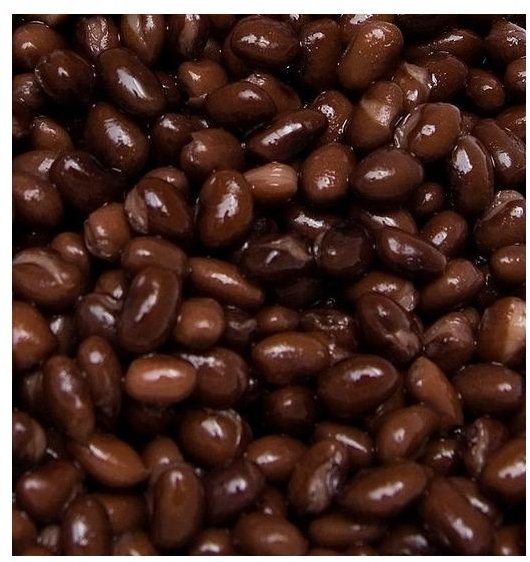Black Beans Nutrition, Health Benefits, and Serving Tips
Nutrition and Benefits
Black beans are an excellent food source to include in your diet. One cup of these healthy beans when boiled are reasonable in calories, low in fat and sodium, cholesterol free, high in protein and fiber and packed with many important vitamins and minerals. Black beans nutrition include:
Calories and Fat
One cup of black beans contain 227 calories, with 8 calories from fat. Total fat is 0.9 grams, about 1% of the daily value. 0.2 grams of the 0.9 are saturated fats. The rest are healthy fats our bodies need: 0.1 grams of monounsaturated fat and 0.4 grams of polyunsaturated fats. These polyunsaturated fats include omega 3 and 6 fatty acids. Both omega fatty acids play an important role in normal growth and development as well as brain function. Omega 3 may reduce the risk of heart disease. Black beans contain no trans fats.
Protein
One cup of black beans contain 15.2 grams of protein, roughly 30% of the daily value. This is about equivalent to 4 ounces of ground beef. Proteins serve many diverse functions, all of which are essential to life.
Carbohydrates
One cup has 40.8 grams of carbohydrates, about 14% of the daily value. Fifteen grams of the 40.8 are fiber. Fiber is an important nutrient many Americans do not get enough of. Actually, fiber is a “non-nutrient,” because the body does not digest or absorb it. However, it has many benefits, including keeping the bowels regular and regulating blood sugar. It may also help in the prevention of heart disease and colon cancer. There is no RDA (recommended daily allowance) for fiber, but the ADA (American Dietetic Association) recommends 20-35 grams a day.
Vitamins and Minerals
Vitamins and Minerals
One cup of black beans furnishes the following daily value of vitamins and minerals:
- 64% folate - essential for the formation of red and white blood cells and helps prevent birth defects
- 38% manganese - important for healthy bones
- 30% magnesium - muscle relaxation and nerve conduction depend on magnesium
- 28% thiamin - plays an important role in energy metabolism
- 24% phosphorus - necessary for healthy bones and teeth
- 20% iron - needed to make hemoglobin, the protein necessary to transport oxygen
- 18% copper - helps protect the skeletal, nervous, and cardiovascular systems
- 17% potassium - important in many metabolic and structural functions
- 13% zinc - benefits the skin and immune system
- 6% riboflavin - essential for releasing energy from food
- 6% vitamin B6 - necessary for the processing of amino acids
- 5% calcium - makes up bone structure
- 4% niacin - needed for energy release
- 4% pantothenic acid - sometimes called the anti-stress vitamin
- 3% selenium - acts as a powerful antioxidant
One cup has 1.7 milligrams of sodium, but this is so minimal that it is considered 0% of the daily value. This makes an excellent choice of food for those limiting salt intake.
Serving Tips
Now that you know about black beans nutrition and how healthy they are for you, you can start adding them in your diet with these serving tips:
- Prepare a black bean and rice dish.
- Use as a topping for baked potatoes.
- Add to salads.
- Make a delicious dip with black beans, guacamole, tomatoes, onions, and cilantro.
- Make a black bean veggie burger.
Sources Used
Nutrition Data: Beans, black, mature seeds, cooked, boiled, without salt - https://nutritiondata.self.com/facts/legumes-and-legume-products/4284/2
Nutrition Data: Beef, ground, 70% lean meat / 30% fat, raw - https://nutritiondata.self.com/facts/beef-products/8004/2
Hamilton, Whitney, and Sizer, Nutrition Concepts and Controversies Third Edition (1985) West Publishing Co.
Photo Credit
Image courtesy of https://commons.wikimedia.org/wiki/File:Black_beans.jpg
